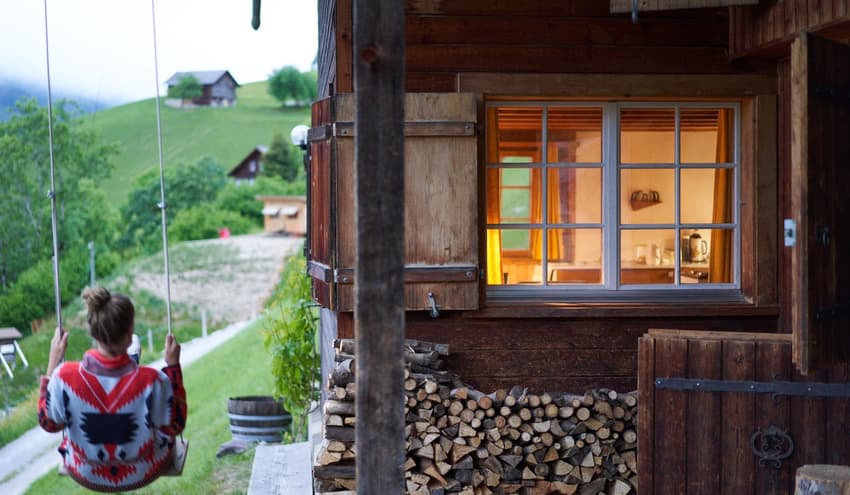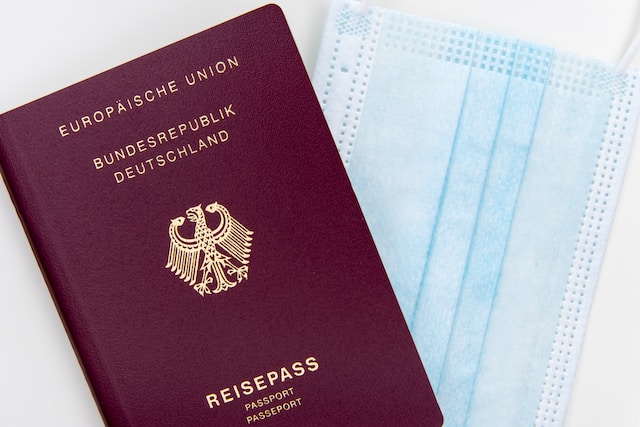Work permits and wages: The most common questions foreigners have about life in Switzerland

Whether you are a newcomer to Switzerland or have been living in the country for a while, you may have many questions about life here. We answered some of the most common queries that foreign nationals wonder about.
Looking to move? Find your next rental apartment here.
When you first arrive in Switzerland, your learning curve is likely quite steep.
It may take a while to understand all the complexities — from various laws and rules, to the practicalities of daily life.
Even some longtime residents who think they have learned everything there is to know, may find out that is not the case.
We have compiled the most common questions foreigners ask about various aspects of Swiss life.
Work permits
Can I work in Switzerland without a permit?
If you are an EU/EFTA national, you can be employed in Switzerland for up to three months without a permit.
However, if your job exceeds the three-month period, you must apply for a permit from the municipality where you live.
Citizens of non-EU/EFTA countries (also known as third countries), on the other hand, face much stricter conditions: they can start their jobs in Switzerland only after they have been granted work permits, which are subject to many restrictions.
How long is a work permit valid?
It depends on what kind of permit and passport you hold.
Here too, people from the EU / EFTA states are in a more favourable position than their third-country counterparts.
For the former, the B permit is valid for up to five years, after which it can be extended or switched to a C permit, which entitles the holder to permanent residency.
For non-EU/EFTA nationals, permits are valid for one year; whether or not they can be extended depends on whether their particular skills are in high demand on the labour market, and whether Swiss or EU/EFTA workers can be found to fill those positions.

EU passport trumps the one from a third country. Photo by Markus Winkler on Unsplash
In case of job loss, is a foreigner entitled to unemployment benefits?
If you have a B or C permit, you will receive unemployment pay, as long as you have been working in Switzerland for at least 12 months in the last two years and have been contributing to the social insurance scheme (as every employee must).
As far as short-term permits L are concerned, which are issued for residency periods of three months up to a year, you are not entitled to collect unemployment benefits.
READ ALSO: Which foreign workers are entitled to unemployment benefits in Switzerland?
Wages
What is a median income in Switzerland?
It is about 80,000 francs a year — meaning that 50 percent of people earn less and 50 percent more.
This link gives you a good overview of what the monthly pay is for various jobs.
How can I know if I am making a fair salary?
There are ways to find out whether you are being compensated sufficiently for the kind of work and position you have, or whether your salary is lower than normal for your industry (a practice known as “wage dumping”).
If you want to know what a standard wage is for your type of job and industry you can do so by checking out the wage calculator created by UNIA trade union.

You can figure out how much you should be earning. Photo: Pixabay
It is programmed with the latest salary levels from 72 different industry sectors and 36,000 companies in Switzerland, so it will give you a good indication of what a fair wage is in your case.
READ ALSO : How much do you need to earn in your Swiss canton to be well off?
Housing
Where are the rents highest (and lowest) in Switzerland?
Typically, housing is most expensive (and scarcest) in cities where most employment opportunities are — Zurich and Geneva.
The Zug area, Basel, and parts of Vaud along Lake Geneva, also have a tight (and expensive) housing market.
On the other hand, suburban and rural areas are not —at least so far — as impacted by the urban housing woes, and it is still possible to find affordable accommodations there.
READ ALSO: Should foreigners in Switzerland live in the city or the countryside?
Can a landlord refuse to rent to a foreigner?
Basically, owners have the right to pick the most prospective tenants for their properties —that is, the most financially stable candidates.
There is, however, evidence that some landlords turn down tenants who have foreign names, though this is by no means a widespread practice.
While there is no legislation pertaining specifically to the housing market, Swiss law does prohibit discrimination in all spheres of life “against a person or a group of persons on the grounds of their ethnic origin, race, language or religion."
Citizenship
How long must I wait to apply for naturalisation?
This depends on whether you are going through the ordinary or simplified procedure.
For the former, which concerns most applicants, the residency requirement is 10 years. You must also be proficient in the language of your canton , and be well integrated into Swiss society as well.
For a fast-track naturalisation based on a marriage to a Swiss citizen, the residency requirement is five years. However, note that the year up to applying must be spent in the country, and and you must be married to and living with your Swiss spouse for at least three years.
What permit do I need to apply for citizenship?
While the B permit is sufficient to live and work in Switzerland, it does not make its holder eligible for naturalisation.
The only ‘stepping-stone’, as it were, to citizenship is the C permit.
Comments
See Also
When you first arrive in Switzerland, your learning curve is likely quite steep.
It may take a while to understand all the complexities — from various laws and rules, to the practicalities of daily life.
Even some longtime residents who think they have learned everything there is to know, may find out that is not the case.
We have compiled the most common questions foreigners ask about various aspects of Swiss life.
Work permits
Can I work in Switzerland without a permit?
If you are an EU/EFTA national, you can be employed in Switzerland for up to three months without a permit.
However, if your job exceeds the three-month period, you must apply for a permit from the municipality where you live.
Citizens of non-EU/EFTA countries (also known as third countries), on the other hand, face much stricter conditions: they can start their jobs in Switzerland only after they have been granted work permits, which are subject to many restrictions.
How long is a work permit valid?
It depends on what kind of permit and passport you hold.
Here too, people from the EU / EFTA states are in a more favourable position than their third-country counterparts.
For the former, the B permit is valid for up to five years, after which it can be extended or switched to a C permit, which entitles the holder to permanent residency.
For non-EU/EFTA nationals, permits are valid for one year; whether or not they can be extended depends on whether their particular skills are in high demand on the labour market, and whether Swiss or EU/EFTA workers can be found to fill those positions.

In case of job loss, is a foreigner entitled to unemployment benefits?
If you have a B or C permit, you will receive unemployment pay, as long as you have been working in Switzerland for at least 12 months in the last two years and have been contributing to the social insurance scheme (as every employee must).
As far as short-term permits L are concerned, which are issued for residency periods of three months up to a year, you are not entitled to collect unemployment benefits.
READ ALSO: Which foreign workers are entitled to unemployment benefits in Switzerland?
Wages
What is a median income in Switzerland?
It is about 80,000 francs a year — meaning that 50 percent of people earn less and 50 percent more.
This link gives you a good overview of what the monthly pay is for various jobs.
How can I know if I am making a fair salary?
There are ways to find out whether you are being compensated sufficiently for the kind of work and position you have, or whether your salary is lower than normal for your industry (a practice known as “wage dumping”).
If you want to know what a standard wage is for your type of job and industry you can do so by checking out the wage calculator created by UNIA trade union.

It is programmed with the latest salary levels from 72 different industry sectors and 36,000 companies in Switzerland, so it will give you a good indication of what a fair wage is in your case.
READ ALSO : How much do you need to earn in your Swiss canton to be well off?
Housing
Where are the rents highest (and lowest) in Switzerland?
Typically, housing is most expensive (and scarcest) in cities where most employment opportunities are — Zurich and Geneva.
The Zug area, Basel, and parts of Vaud along Lake Geneva, also have a tight (and expensive) housing market.
On the other hand, suburban and rural areas are not —at least so far — as impacted by the urban housing woes, and it is still possible to find affordable accommodations there.
READ ALSO: Should foreigners in Switzerland live in the city or the countryside?
Can a landlord refuse to rent to a foreigner?
Basically, owners have the right to pick the most prospective tenants for their properties —that is, the most financially stable candidates.
There is, however, evidence that some landlords turn down tenants who have foreign names, though this is by no means a widespread practice.
While there is no legislation pertaining specifically to the housing market, Swiss law does prohibit discrimination in all spheres of life “against a person or a group of persons on the grounds of their ethnic origin, race, language or religion."
Citizenship
How long must I wait to apply for naturalisation?
This depends on whether you are going through the ordinary or simplified procedure.
For the former, which concerns most applicants, the residency requirement is 10 years. You must also be proficient in the language of your canton , and be well integrated into Swiss society as well.
For a fast-track naturalisation based on a marriage to a Swiss citizen, the residency requirement is five years. However, note that the year up to applying must be spent in the country, and and you must be married to and living with your Swiss spouse for at least three years.
What permit do I need to apply for citizenship?
While the B permit is sufficient to live and work in Switzerland, it does not make its holder eligible for naturalisation.
The only ‘stepping-stone’, as it were, to citizenship is the C permit.
Join the conversation in our comments section below. Share your own views and experience and if you have a question or suggestion for our journalists then email us at [email protected].
Please keep comments civil, constructive and on topic – and make sure to read our terms of use before getting involved.
Please log in here to leave a comment.